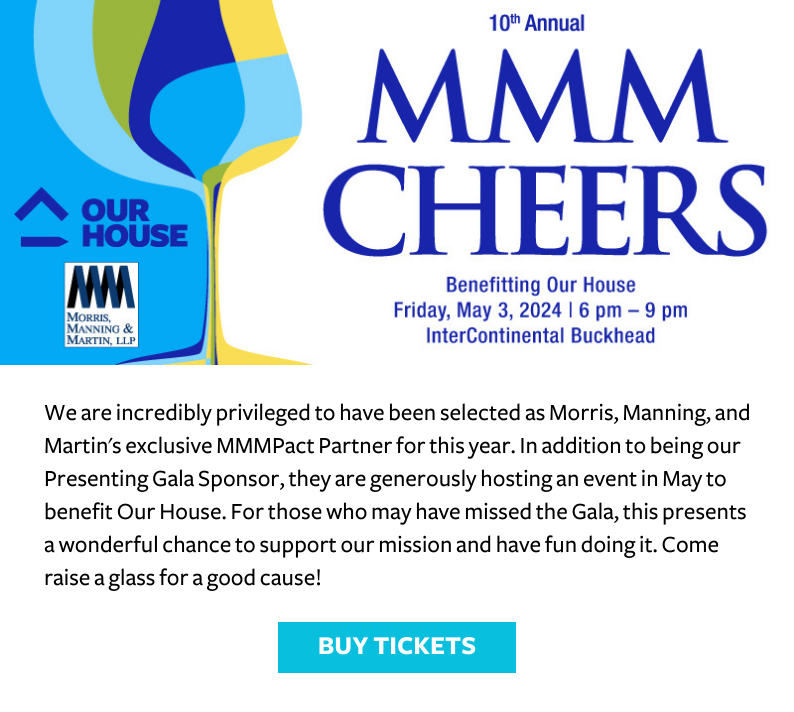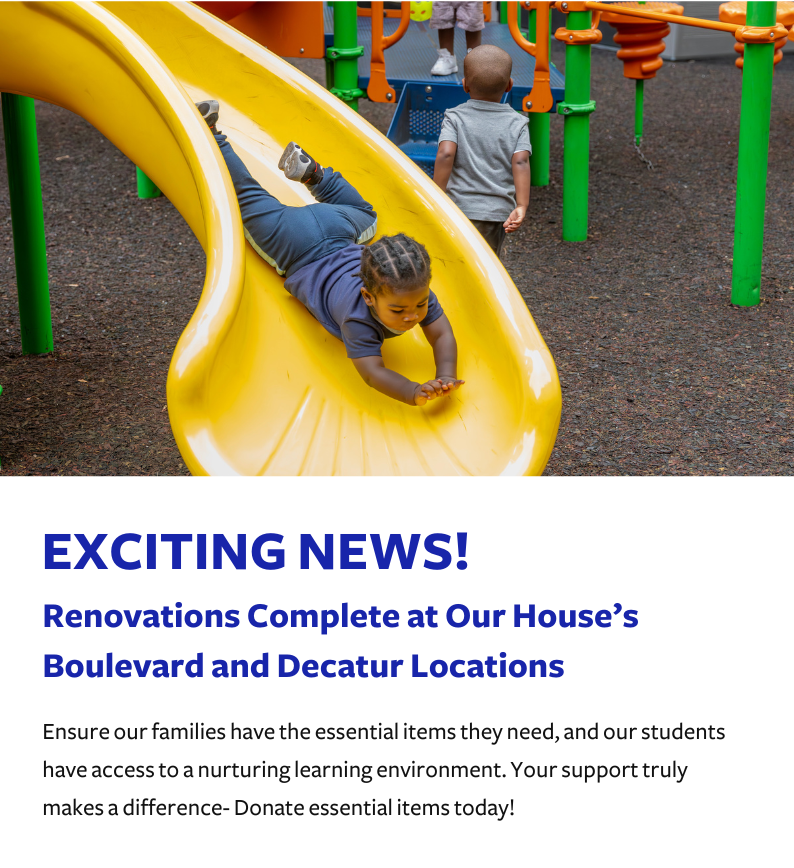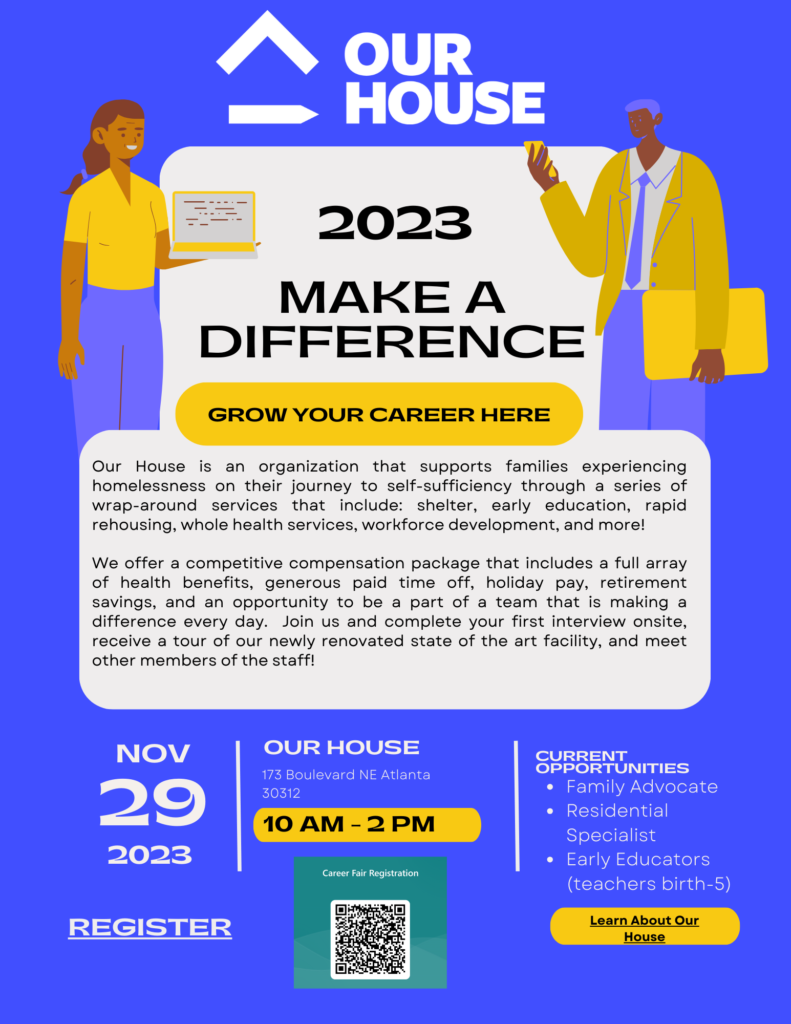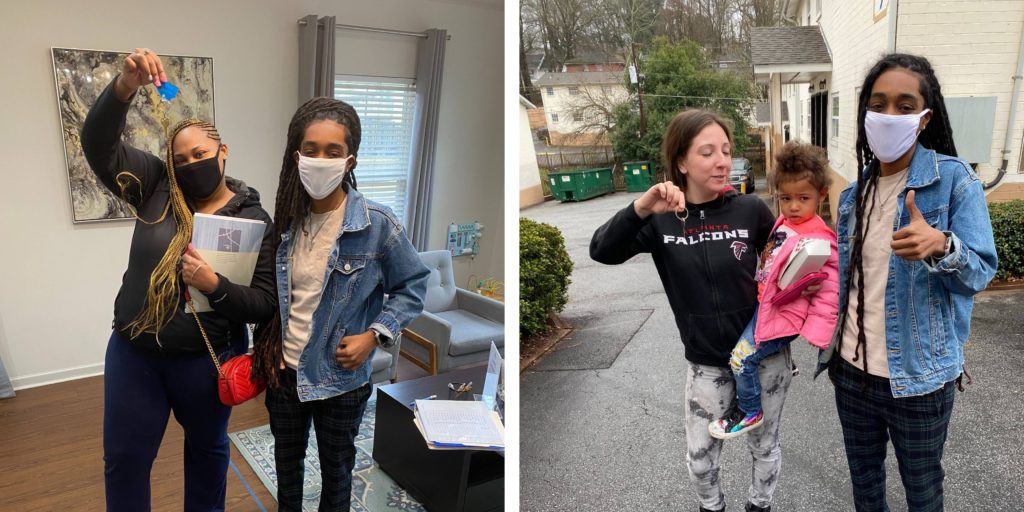Our House Awarded Grant for Parents and Children Impacted by Domestic Violence
Our House is honored to receive the FY 2024 SSAPC grant from the Office of Family Violence Prevention and Services. This funding will help us strengthen support for abused parents and children exposed to domestic violence across Metro Atlanta through enhanced services, advocacy, and interventions.
Fulton County Summer Job Training
Our House Career Exploration in Early Learning Program
Georgia’s PreK: Now Enrolling
April 2024 Newsletter

April 1, 2024
March 2024 Newsletter

Check out what’s happening at Our House!
Make a Difference with Our House

Join us for our Career Fair November 29, 2023 10:00am-2:00pm. Details below.
Capital Campaign Update: Renovations Underway
Groundbreaking has commenced at the Decatur location and the new floors are in at the Atlanta location. These steps are just the beginning of the transformation these facilities will undergo to enhance the environment and overall quality of care that we provide to the families at Our House. We are looking forward to witnessing the […]
Real Talk: Being Family Advocates at Our House
Part of the Family Services team, Family Advocates provide case management to all families enrolled in Our House programs. To help others understand the important role Family Advocates play, we talked with Daphney Davis (left) and Christine Chandler (right) about their experience working at Our House’s shelter in Atlanta. This interview has been edited for […]
Our House Welcomes Michelle Carter as New Chief Impact Officer
Our House is pleased to welcome Michelle Carter, MPA, a 25-year professional in the fields of early childhood education, family services, and program management, as our new Chief Impact Officer. A newly created role, the Chief Impact Officer will ensure Our House delivers on its strategic initiatives and programmatic goals as we move from the […]
Our House and Partners for HOME Work Together On Rapid Re-Housing Initiative

In January 2021, Our House launched a powerful new partnership. For one year, Our House’s Family Services team will be part of a network of nonprofits participating in the City of Atlanta’s Coronavirus Relief Fund COVID Recovery Rapid Re-Housing Initiative with Partners for HOME. The initiative is part of an ambitious $24.1 million dollar effort […]
